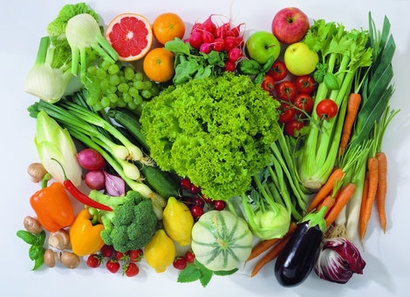
In a study published in Process Safety and Environmental Protection, authors Rajinikanth Rajagopal, David Bellavance and Mohammad Saifur Rahaman demonstrate the viability of using anaerobic digestion in a low-temperature (20°C) environment to convert solid food waste into renewable energy and organic fertilizer.
Globally, more than 1.3 billion tonnes of municipal waste are created each year, and that number is expected to increase to 2.2 billion by 2025. Most of it ends up in landfills where it biodegrades over time, producing biogas, a powerful greenhouse gas largely composed of carbon dioxide, methane and hydrogen sulfide.
Left alone, this methane-rich biogas poses a significant climate threat, as methane carries a global warming potential that is 21 times greater than that of carbon dioxide.
But, according to the researchers, engineered anaerobic digestion techniques can also be adapted to capture such gases and transform them into renewable energy. Methane can be collected, cleaned and converted into heat or electricity by employing devices such as biogas storage domes, biofilters or combined heat and power co-generation systems. The energy generated can then be substituted for most fossil fuels. At an agronomic level, the process also contributes leftover nitrogen and phosphorus-rich digestate material that can be subsequently recovered and used as plant fertilizer.
The research was conducted in collaboration with Bio-Terre Systems Inc. The researchers employed psychrophilic bacteria - which thrive in relatively low temperatures - to break down food waste in a specially designed bioreactor. In doing so, they produced a specific methane yield comparable to that of more energy-intensive anaerobic digestion processes. The most commonly used forms of anaerobic digestion require large amounts of energy to heat the bioreactors and maintain temperatures for the bacteria’s optimal performance.
“There is enormous potential here to reduce the amount of fuel that we use for solid waste treatment” said Rahaman. “Managing and treating food waste is a global challenge, particularly for cold countries like Canada where the temperature often falls below -20°C and energy demands related to heating are high. What we’ve learned is that we can now use adapted psychrophilic bacteria to produce a level of methane comparable to those more common forms, while using less energy.”
Rajagopal added that there aren’t many studies that look into developing new applications for treating food waste and that the researchers hope the study will mark the beginning of a promising new research direction.
The process for feeding the bioreactor is unique. It involves a semi-continuously fed constant volume overflow approach: the amount of food waste fed into the bottom opening necessitates the removal of an equal amount of treated effluent from the top.
The researchers performed various tests on the extracted material to determine its physicochemical characteristics as well as to monitor the biogas quality and quantity.
Image: Michael Stern, Flickr
For additional information:

